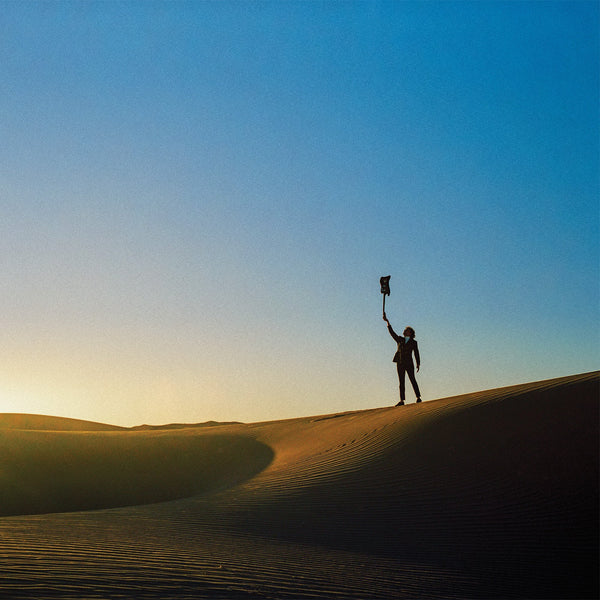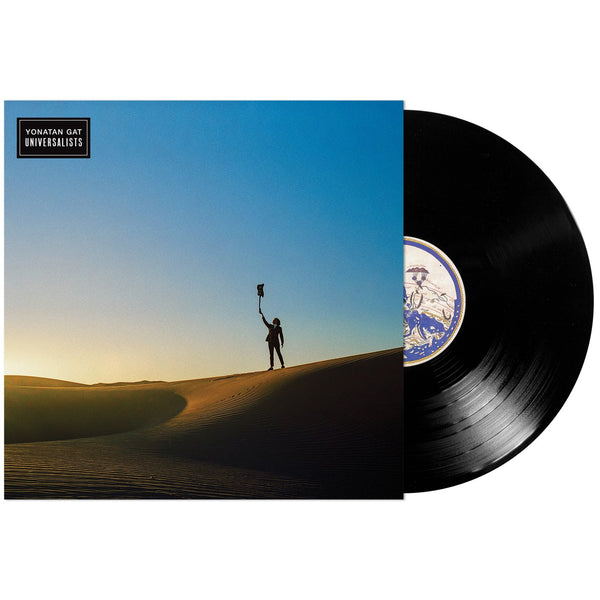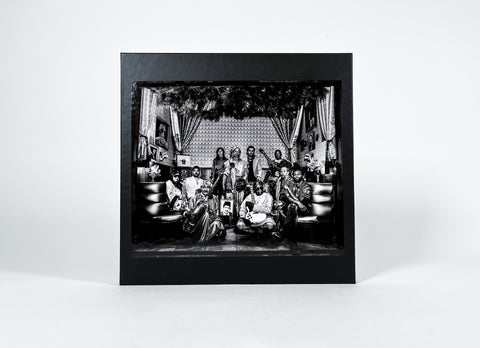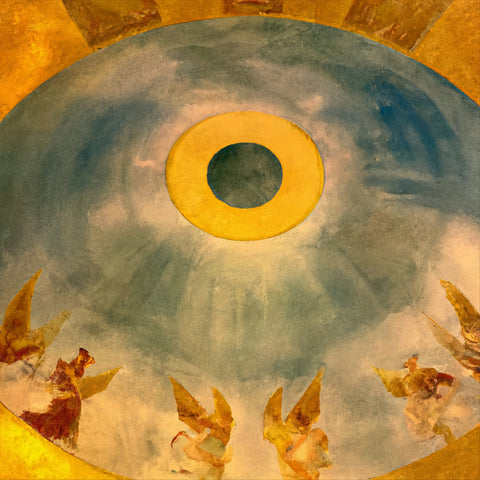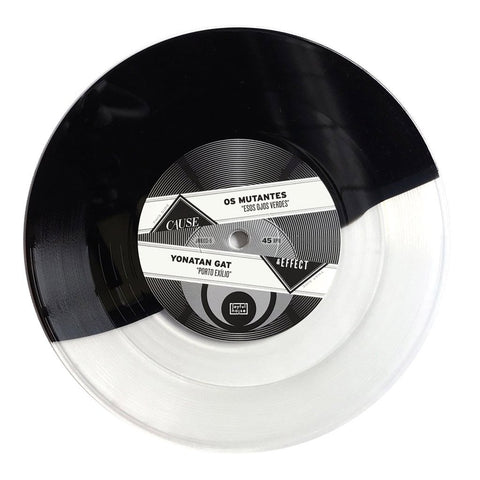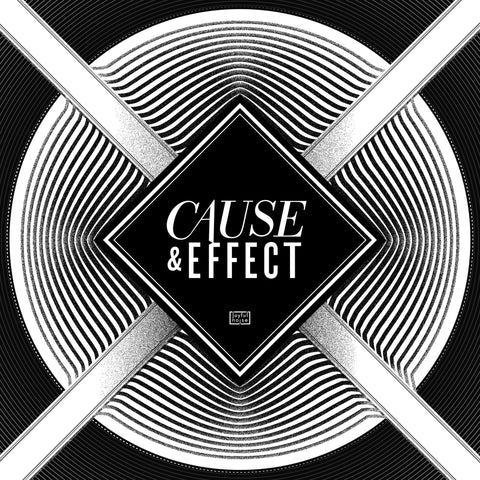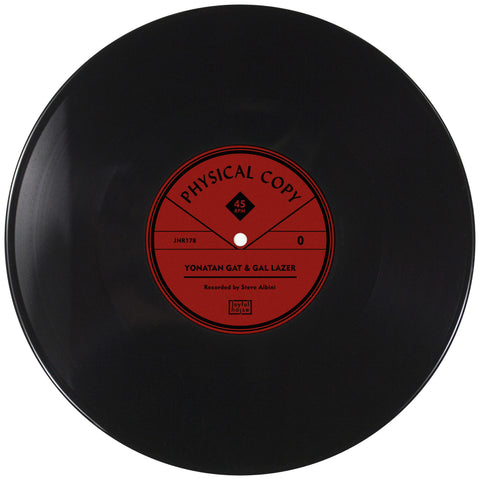$ 22.00 USD
SOLD OUT
- Cue the Machines (3:05)
- Post-World (1:22)
- Fading Casino (2:51)
- Cockfight (2:24)
- Medicine (4:55)
- Projections (2:14)
- Sightseer (3:52)
- Dream Sequence (2:58)
- Chronology (6:38)
- The Imaginary (2:48)
Yonatan Gat is a guitarist, producer and experimental composer based in NYC.
Gat became known as one of the world's top performers as founder and guitarist of Monotonix, hailed by SPIN as "the most exciting live band in rock’n’roll,” with concerts that destroyed the border between performer and audience, and were controversial enough to get them banned from playing their home country of Israel.
Gat then relocated to New York City. He began recording and performing as a solo artist, and in 2014 released the Iberian Passage EP, a debut that maintained his signature raw energy while switching the focus away from the shock-performance style of Monotonix to a more ritualistic, improvised, shamanic musical exploration. In 2015, the genre-bending full-length Director was released. Composed mostly of live-to-tape improvisations by his trio and field recordings made by Gat, the record was a mind-melting exploration through many different styles of music, from Brazilian psych and Afrobeat to free jazz, surf, and 20th century avant-garde.
Three years on, Gat returns with Universalists, an album that marks an ambitious and expansive next step. As on Director, Universalists once again showcases the muscular trio of Gat on guitar, Gal Lazer on drums, and Sergio Sayeg on bass. The performances are breathtaking, showcasing a band of fire and finesse. Charged with a confrontational urgency and hurtling through space on a helter-skelter global time warp, this is a record that bursts with transcendent energy – ripping punk, brutal noise, composed moments of pristine beauty, live-to-tape improvisation, cutting-edge vocal sampling, all brought together by Gat’s sui generis guitar playing.
The sources of inspiration on Universalists are vast. Opening song “Cue The Machines” begins with Alan Lomax field recordings of a choir in Genoa, Italy in the 1950s – the voices sampled and chopped into a skittering rhythm underneath merciless punk. “There’s a vocal style from Genoa called Trallaero,” explains Gat. “One can almost hear a similarity between the way they roll their R’s to the glitches of contemporary electronic and hip hop beats.”
On “Medicine”, Gat is joined by the Eastern Medicine Singers, a powwow drum group from Rhode Island whom Gat first encountered at SXSW. “The first time I saw the Eastern Medicine Singers they were playing outside the venue just before we went on. I loved their music and asked if they wanted to improvise with us during our concert. We had never met before, and they immediately replied ‘No.’ I suggested that if they liked our music and changed their minds, they’d be welcome to join. By the second song they were hauling their gigantic drum inside and we started playing together in the middle of the room – two bands forming two circles, with the crowd around us – dancing, trancing, many in tears.” The album’s finale, a sound collage of different live recordings of Yonatan’s band that have been rendered into rhythmic juxtapositions – a brutal wall of sound.
Universalists is a conceptual and crafted snapshot of an artist evolving and experimenting, fusing the physical garage punk and freewheeling improvisational sounds of Gat’s past with elements of avant-garde composition, electronic production and the signature sound of his genre-bending inimitable guitar. Set to be released in the hostile political climate of 2018, the album is inevitably charged with a sense of confrontational urgency. While Universalists is indeed a provocative work, it goes beyond exploring the distress of our time.It not only reveals the distinction between cultures, but the complex similarities, expressing our shared need for musical ritual celebration – in any time and at any place.


